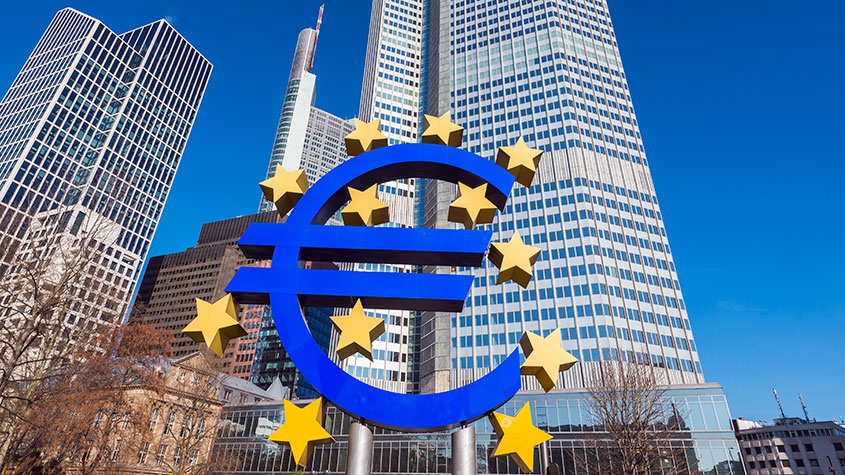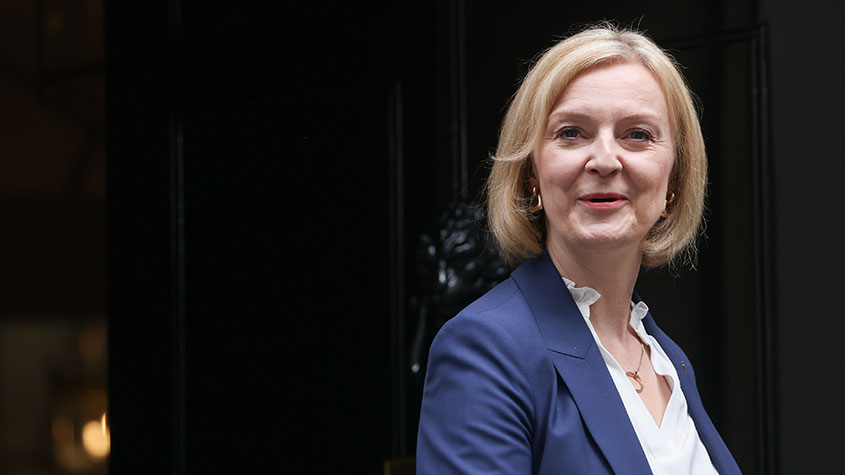Bad government is holding back Scotland’s economy
Low oil prices and the prospect of another independence referendum are damaging Scotland's economy. But there is another problem, says Merryn Somerset Webb: bad government.

Get the latest financial news, insights and expert analysis from our award-winning MoneyWeek team, to help you understand what really matters when it comes to your finances.
You are now subscribed
Your newsletter sign-up was successful
Want to add more newsletters?

Twice daily
MoneyWeek
Get the latest financial news, insights and expert analysis from our award-winning MoneyWeek team, to help you understand what really matters when it comes to your finances.

Four times a week
Look After My Bills
Sign up to our free money-saving newsletter, filled with the latest news and expert advice to help you find the best tips and deals for managing your bills. Start saving today!

The Scottish economy is having a tough year. So tough that the EY Scottish Item Club has just cut its forecast for growth this year to a mere 1.2% (down from 1.8%)
Much of this is obviously down to the carnage in the oil and gas industry.Thousands of jobs have gone here already and, according to another report from the Bank of Scotland, (reported on in The Times) one third of firms expect to cut more people from their payrolls this year.
This all has obvious ripple effects throughout the economy (from the housing market in Aberdeen to consumer spending and engineering). But the authors of the report aren't sure that the problem is all about oil and gas.
MoneyWeek
Subscribe to MoneyWeek today and get your first six magazine issues absolutely FREE

Sign up to Money Morning
Don't miss the latest investment and personal finances news, market analysis, plus money-saving tips with our free twice-daily newsletter
Don't miss the latest investment and personal finances news, market analysis, plus money-saving tips with our free twice-daily newsletter
The ripple, they say, "seems to have been bigger and stronger than might have been expected on past relationships. There is a kind of nagging feeling that there is something else holding back the Scottish economy but it's difficult with the available data to put your finger on it." So what might that something else be?
One answer is the odds of a second referendum: with the SNP planning another independence offensive over the summer it would seem obvious that, just as the EU referendum is affecting the UK as a whole, concerns about the instability another independence referendum would bring are holding back investment in Scotland.
Another answer might be farming. It isn't a huge sector for Scotland any more in GDP terms only 1.8% of the working population fishing (or around 8% of the rural population) is directly employed in agriculture, and it directly accounts for not much more than 2% of GDP. But that doesn't mean it isn't still reasonably important. 75% of Scotland's landmass is farmed and the total output of their efforts comes to £2.3bn a year. It's also worth noting that the NFUS reckons that for each direct job in agriculture "another three jobs exist in businesses connected to agriculture (agricultural supplies, food and drink processing etc). They may be overegging slightly but even if we knock a bit off we are still on around 5%.
With that in mind look at pages 14-16 of this report from Audit Scotland on the matter of the payment of Scotland's farm subsidies (a large percentage of farms are totally unviable without subsidies). There is a new system (cost so far: £126m). It hasn't worked very well. By the end of April, only 77% of farmers had been paid any of the entitlements that had been promised to them by December last year. None had been paid their full subsidy entitlement. Farmers also know that some of the payments they have had are subject to clawback under certain circumstances.
That, I imagine, will also be having rising ripple effects if you haven't been paid and you don't even know how much you might end up being paid, you definitely don't buy a new tractor (or anything else for that matter) and you might not pay your suppliers either. There's a confidence issue there.
So back to the "something else" holding back Scotland's economy. Neither the neverendum nor the agriculture sector are doing it alone, but they give us a hint as to what might be. Bad government perhaps?
Get the latest financial news, insights and expert analysis from our award-winning MoneyWeek team, to help you understand what really matters when it comes to your finances.

-
 New PM Sanae Takaichi has a mandate and a plan to boost Japan's economy
New PM Sanae Takaichi has a mandate and a plan to boost Japan's economyOpinion Markets applauded new prime minister Sanae Takaichi’s victory – and Japan's economy and stockmarket have further to climb, says Merryn Somerset Webb
-
 Plan 2 student loans: a tax on aspiration?
Plan 2 student loans: a tax on aspiration?The Plan 2 student loan system is not only unfair, but introduces perverse incentives that act as a brake on growth and productivity. Change is overdue, says Simon Wilson
-
 No peace dividend in Trump's Ukraine plan
No peace dividend in Trump's Ukraine planOpinion An end to fighting in Ukraine will hurt defence shares in the short term, but the boom is likely to continue given US isolationism, says Matthew Lynn
-
 Europe’s new single stock market is no panacea
Europe’s new single stock market is no panaceaOpinion It is hard to see how a single European stock exchange will fix anything. Friedrich Merz is trying his hand at a failed strategy, says Matthew Lynn
-
 Britain’s inflation problem
Britain’s inflation problemInflation in the UK appears to be remaining higher for longer when compared with similar rich countries. Why? And when can we expect a return to normal? Simon Wilson reports.
-
 Eurozone inflation hits 10.7% in October
Eurozone inflation hits 10.7% in OctoberNews Inflation across the eurozone hit 10.7% in October. What does it mean for your money?
-
 Beating inflation takes more luck than skill – but are we about to get lucky?
Beating inflation takes more luck than skill – but are we about to get lucky?Opinion The US Federal Reserve managed to beat inflation in the 1980s. But much of that was down to pure luck. Thankfully, says Merryn Somerset Webb, the Bank of England may be about to get lucky.
-
 A forgotten lesson on the dangers of energy price caps
A forgotten lesson on the dangers of energy price capsAnalysis Liz Truss’s proposed energy price cap is an ambitious gamble. But a similar programme in Spain ended up being a fiasco, say Max King and Tom Murley. Here, they explain why Truss’s plan could be doomed to failure.
-
 Don't be scared by economic forecasting
Don't be scared by economic forecastingEditor's letter The Bank of England warned last week the UK will tip into recession this year. But predictions about stockmarkets, earnings or macroeconomic trends can be safely ignored, says Andrew Van Sickle.
-
 The wolf returns to the eurozone’s door
The wolf returns to the eurozone’s doorEditor's letter The eurozone’s intrinsic flaws have been exposed again as investors’ fears about Italy’s ability to pay its debt sends bond yields soaring.